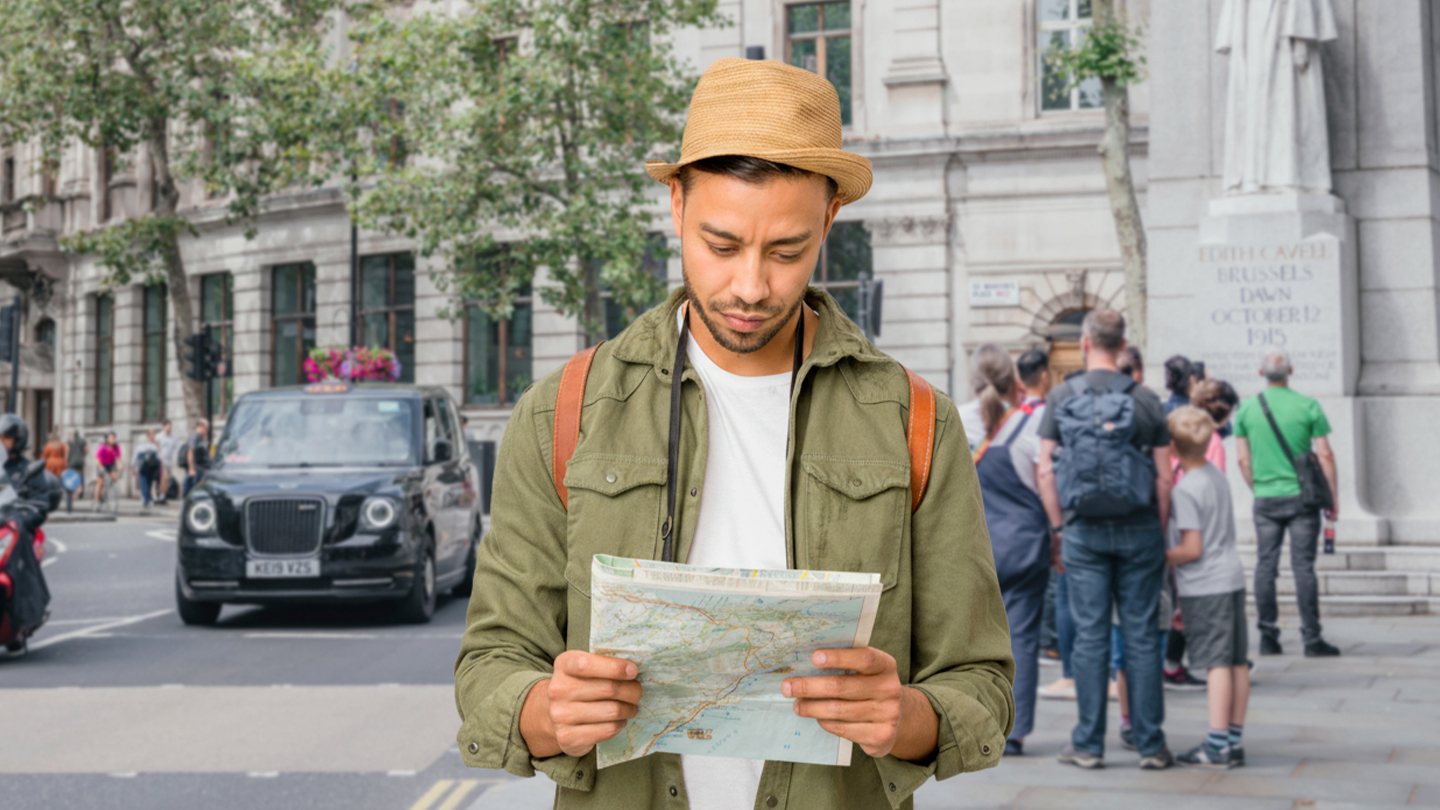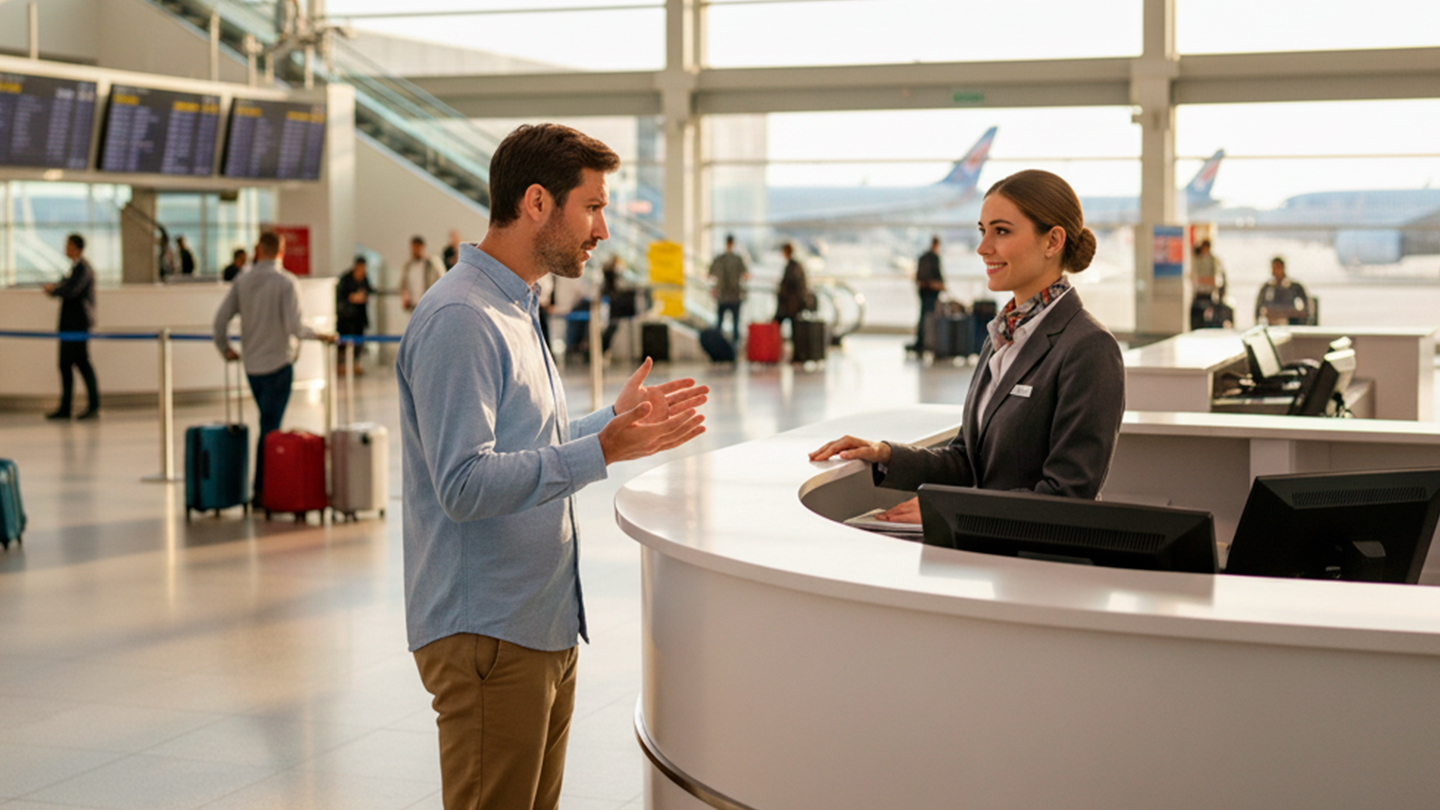Whether you’re checking in at a hotel, ordering dinner, or asking for directions, having a few English phrases ready can make your travels much smoother.
English is one of the most widely spoken languages in the world — even in countries where it’s not the native language, it’s often the best way to communicate with hotel staff, airport personnel, and fellow travellers. This guide will help you learn the most useful English expressions for your next trip abroad.
Why English is useful when travelling internationally
From airports to tourist attractions, English is the most common second language used in international travel. It’s often the “neutral” language used between people from different countries.
That’s why even if you’re just starting to learn English, knowing a few phrases can go a long way. If you’re new to learning English, check out our guide on how to start learning English as a beginner — it’s full of practical tips to get you started.
At the airport: must-know English words and questions
These questions and phrases will help you navigate any airport more confidently:
- “Where is the check-in desk for [airline]?”
- “Is this the line for security?”
- “How long is the delay?”
- “I have a connecting flight to [destination].”
- “Where is baggage claim?”
- “Do I need to remove my laptop?”
- “Can I take this in my carry-on?”
Words like boarding pass, gate, customs, and terminal are useful to review before your flight.
Essential phrases for hotels, restaurants and shopping
At the hotel:
- “I have a reservation under the name [name].”
- “What time is check-out?”
- “Do you have free Wi-Fi?”
- “Can I get a wake-up call?”
At a restaurant:
- “A table for two, please.”
- “Could I see the menu?”
- “I’m allergic to [nuts/shellfish/etc.].”
- “Can we split the bill?”
When shopping:
- “How much does this cost?”
- “Can I try it on?”
- “Do you have this in a different size?”
- “Do you take credit cards?”
How to ask for directions and handle transportation
If you get lost or need help getting around, these phrases are incredibly useful:
- “Excuse me, how do I get to [place]?”
- “Is it walking distance?”
- “Where can I buy a ticket?”
- “How much is a taxi to [place]?”
- “Which stop is closest to [landmark]?”
- “Does this train go to [destination]?”
These questions are great for buses, trains, taxis, and metro stations.
Emergency phrases you should know before travelling
You may never need them, but it’s important to be prepared. Learn these just in case:
- “I need help.”
- “I’m lost.”
- “I need a doctor.”
- “Is there a pharmacy nearby?”
- “I’ve lost my passport.”
- “Can you call the police?”
Having these written down on a note or saved on your phone can also be helpful.
Cultural tips and etiquette in English-speaking countries
Even with the right words, how you use them matters. Here are a few etiquette tips that apply in many English-speaking countries:
- Use please and thank you generously — politeness goes a long way.
- It’s common to make small talk (e.g., “How are you?”) even in quick interactions.
- Tipping is expected in restaurants (usually 10–20%).
- Respect personal space — don’t stand too close in lines.
- Eye contact is usually seen as polite, not aggressive.
Apps and tools to help you communicate in English while abroad
Here are a few tools that can support you while travelling:
- Google Translate – with offline mode for emergencies
- TripLingo – useful for both phrases and local culture tips
- Duolingo or Memrise – great for reviewing key vocabulary
- XE Currency Converter – useful for shopping and budgeting
- Big Brain Languages – our travel-focused lessons can help you prepare before your trip
If you’re part of a company that supports language learning, it might also be worth exploring how online English learning platforms can fit into your employee development strategy — they’re a smart investment for international teams.
What to practice before your trip: listening and pronunciation
You don’t need to be fluent to travel confidently. Focus on:
- Listening – Try airport announcements, travel podcasts, or YouTube videos with subtitles
- Pronunciation – Practice common travel words like ticket, reservation, checkout, and passport
- Speaking – Repeat phrases aloud until they feel natural
And if you’re planning to take an official exam in the future, this breakdown of which English exam is best for you can help you plan ahead.





